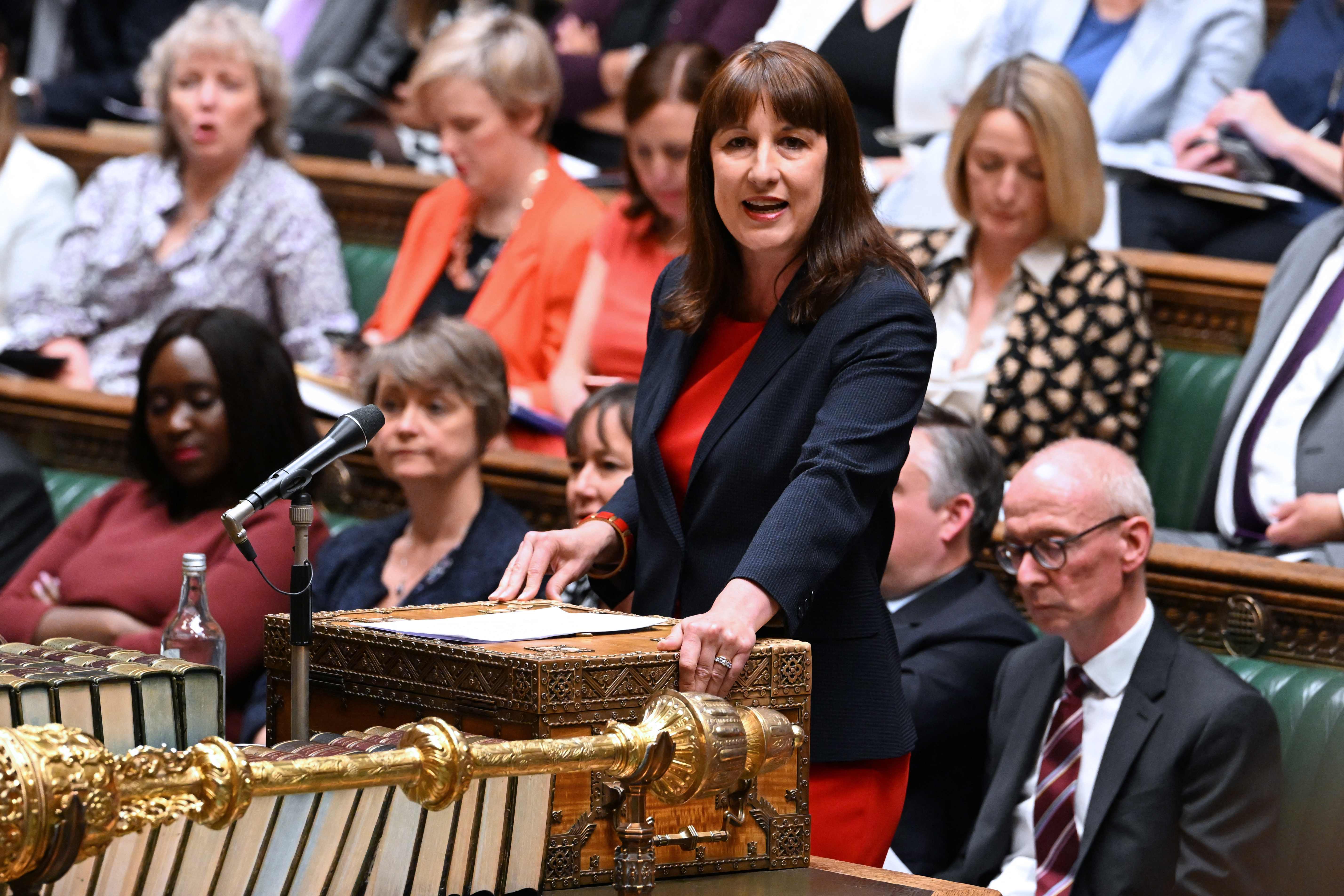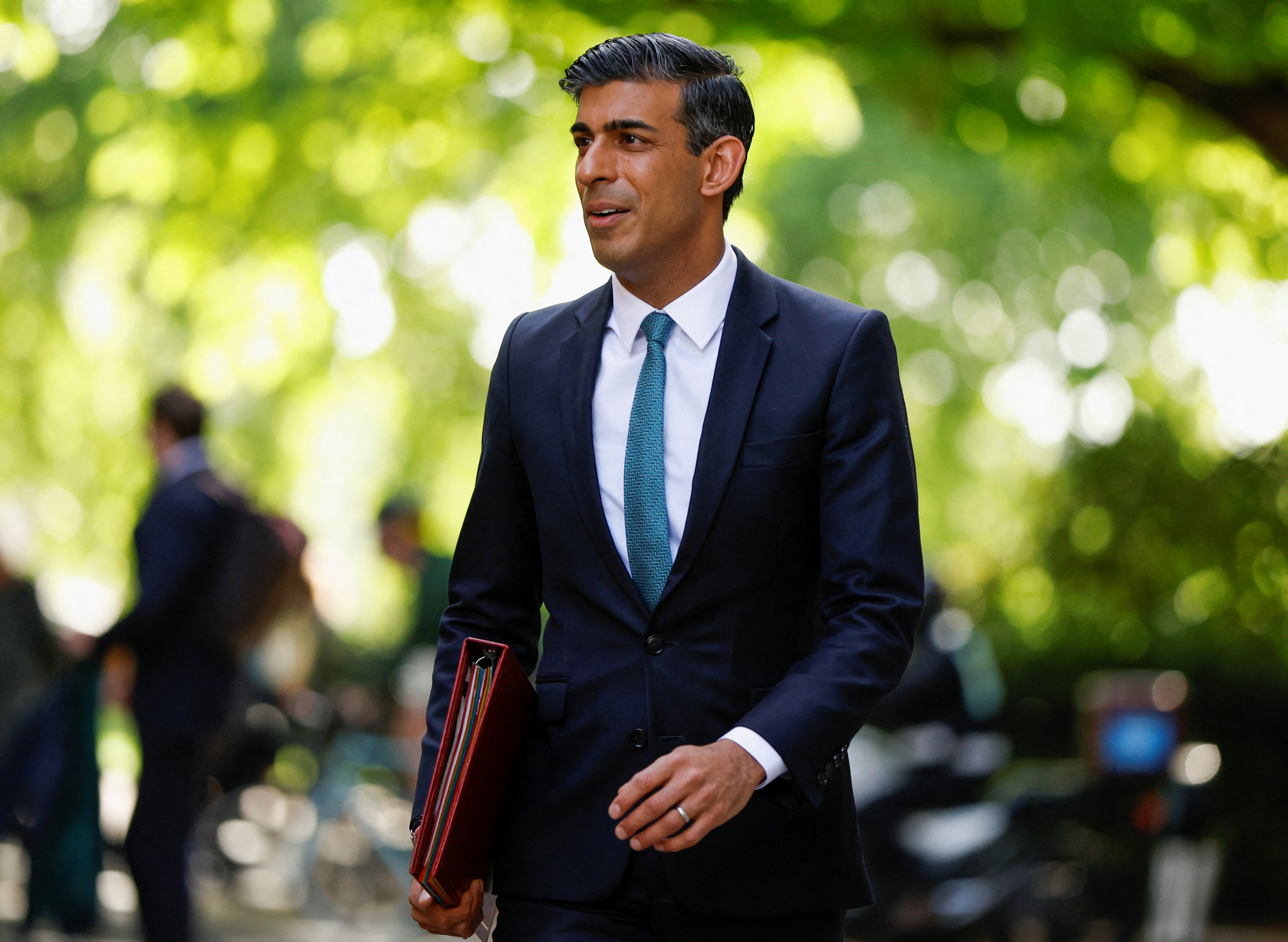Rishi Sunak told to scrap £200m ‘cobbled together loophole’ giving second home owners multiple energy rebates
Exclusive: Rachel Reeves says chancellor’s policy was ‘cobbled together at last minute’

Your support helps us to tell the story
From reproductive rights to climate change to Big Tech, The Independent is on the ground when the story is developing. Whether it's investigating the financials of Elon Musk's pro-Trump PAC or producing our latest documentary, 'The A Word', which shines a light on the American women fighting for reproductive rights, we know how important it is to parse out the facts from the messaging.
At such a critical moment in US history, we need reporters on the ground. Your donation allows us to keep sending journalists to speak to both sides of the story.
The Independent is trusted by Americans across the entire political spectrum. And unlike many other quality news outlets, we choose not to lock Americans out of our reporting and analysis with paywalls. We believe quality journalism should be available to everyone, paid for by those who can afford it.
Your support makes all the difference.Rishi Sunak should scrap an estimated £200m “loophole” that allows wealthy owners of second homes to receive multiple energy rebates, the shadow chancellor has said.
In an interview with The Independent, Rachel Reeves claimed the system’s design was a result of the chancellor’s support package being “cobbled together at the last minute” and amid damaging Partygate headlines.
After the extraordinary U-turn to impose a windfall tax, Ms Reeves also hit out at the inclusion of a tax relief measure for energy companies investing further in fossil fuel extraction – describing it as a “get out of jail card”.
The remarks come after ministers bowed to pressure and unveiled a multibillion-pound package aimed at alleviating the cost of living crisis, ditching a £200 loan scheme in favour of a universal £400 rebate on energy bills.
But questions have been raised after it emerged individuals who own more than one home will receive multiple payments – one for each property.
Labour’s own analysis shows there are just short of half a million second homes (499,763) in England, Wales, and Scotland combined that could be in line for extra support.
If all of these properties were to receive a second £400 payment, Ms Reeves said the party’s estimate was that “£200m of money [announced] yesterday will go to people with multiple properties”.
She said: “First of all this is borrowing, so all this money the government are borrowing, £10m, that all has to be paid back by future generations, so you could have just not had that in the package. It seems to me this money should be better targeted at those people who need it.
“I think the point is, the government were forced into this U-turn, they decided they didn’t need to do anything until the very last minute, and as a result you’ve got a plan that is not as well-thought-through if I would have been designing it and has got these loopholes in it.”
Asked whether the government should scrap this element of support, the shadow chancellor told The Independent: “Yeah. You shouldn’t design a system that sees people who are fortunate enough to own multiple properties get multiple payments.
“This is about trying to help people, families that are struggling will bills, not putting more money into the pockets of the wealthiest.”
Defending the plans on Friday, Mr Sunak said those with second homes receiving multiple grants of £400 will only account for a small proportion of payments across the country.

The chancellor, who said he would donate his grant to charity, claimed there were only a couple of “practical” ways of delivering payments, either universally or through the council tax system, which could exclude some deserving individuals.
He added in an interview with the Money Saving Expert founder Martin Lewis that Sue Gray’s long-awaited report into the Partygate scandal – published on Wednesday – had “no bearing on the timing” of support being announced. “I can give you my absolute assurance on that and my word,” he said.
But Ms Reeves also claimed it was “extraordinary” that the chancellor could announce £10bn worth of borrowing without any documents or costings provided by the Office for Budget Responsibility (OBR).
“Why is that? Because it was all cobbled together at the last minute. The government had been resisting this, bowed to the inevitable, and wanted to do something to move the headlines on. But that is no way to make economic policy.”
Pointing to multiple rebates for those with second homes, she added: “It’s why you’ve got these anomalies”.
Ms Reeves said the chancellor’s adoption of a windfall tax, after months of government ministers publicly trashing the concept, was evidence Labour is “winning the battle of ideas in politics”.
“There are still plenty of things we are calling on the government to do now that they still haven’t done,” she said, insisting the best way to reduce energy bills would be to insulate millions of homes each year.
“The biggest gap now in what the Conservative government are putting forward is a plan to get us out of this mess, to stop us from lurching from crisis to crisis.”
The shadow chancellor also took aim at Mr Sunak, after he announced tax relief measures that risk incentivising energy firms to invest in fossil fuel extraction during a climate emergency.
“I don’t think it is needed to have this sort of get-out-of-jail card, that business can avoid this tax if they invest more in fossil fuels,” she said.
“The chief executive of BP said that a windfall tax wouldn’t impact on investment. We need to be tilting investment in favour of new nuclear and renewables especially, rather than toward fossil fuels.
“When we set out our plans, we didn’t have that in it; ours was just a plain windfall tax to say you’re making extraordinary profits because of the surge in prices, use that money to take money off people’s bills.”
Ms Reeves added: “I’m not sure how what they said yesterday is consistent with the Cop26 pledges that we made in Glasgow last year.
“If we’re going to make investment allowances to encourage investment in energy, it should be as I say in new nuclear and renewables because that is the way to get net zero, to boost our energy security and also to take money off people’s bills.”


Join our commenting forum
Join thought-provoking conversations, follow other Independent readers and see their replies
Comments